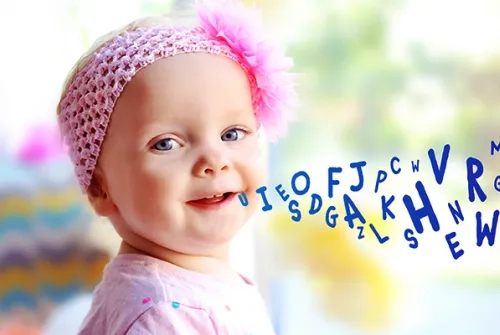Alo Yeditepe
Alo Yeditepe
When do Babies Start Talking?
One of the things that excite parents, such as walking and running, is speech. Often, families expect the conversation to happen immediately. So what is the right time for babies to talk? When do babies talk? Yeditepe University Hospitals Child Health and Diseases Specialist Dr. Lecturer Coşkun Saf explained. We all can't wait for our baby to talk soon. A single word from their mouths is enough for us to be happy. But sometimes speech in babies can be delayed for some reason. What causes speech delay in babies? All the curious questions, Child Health and Diseases Specialist Dr. Faculty Member Coşkun Saf replied.
When do babies start talking?
Talking constitutes one of the most important developmental processes of the human brain and is considered an important indicator of the baby's social and brain development. The first steps of speech in babies can be considered as humming and musical sounds that begin around 3 months. They start to form syllables around 6 months, words around 1 year old and small sentences of 2-3 words around 2 years old.
What words are expected in babies at which month?
Babies start to hum, gurgle and make musical sounds around 3 month
s, and respond to the sounds coming from the environment by laughing or making different sounds, and different types of crying for different needs are expected developmental indicators in this period. Then, around 6 months, they start to say syllables, and at the beginning, the basis of the first words is laid by saying more repetitive syllables such as ba-ba or de-de. Meanwhile, around 9 months, babies begin to understand the meanings of basic words such as 'no' or 'bye bye' and begin to give specific reactions to these words. When evaluating speech in infants, not only the syllables, words or sentences spoken by the baby, but also the understanding and reaction of the words or sentences heard in the environment are evaluated. Between 12-18 months, it is expected to be able to say a few understandable words such as "mother, father, grandfather" and to carry out small understandable commands. Between 18-24 months, it is expected that they can say the simple and short words they hear by imitating, even if they are not complete, their vocabulary has increased a little more, they use around 10 words, and they know the names of people, objects and body parts. Around the age of 2, they are expected to be able to form small sentences of a few words and to be able to say around 50 words.
In Which Month Does Speech Delay in Babies Become a Problem?
Speech delay can be defined as the absence of the speech and language development steps mentioned above at the expected age of the child. Regardless of which month such a delay is detected, the child may need to be evaluated by a pediatrician regarding the underlying conditions and, if necessary, evaluated in a multidisciplinary manner by specialists such as otolaryngology, child psychiatry, child neurology, child development specialist or speech and language therapy. Speech delay can have many anatomical, neurological, psychiatric, social and developmental reasons, and many of them are important for the normal course of the child's development when early intervention is made. To give examples of situations that cause speech delay in children, an unnoticed hearing problem in the child, anatomical abnormalities of the tongue tie or palate, lack of dialogue or stimuli in the child's social environment, psychiatric disorders such as autism spectrum disorders, special learning abnormalities, neurological or metabolic diseases that affect brain development can be counted.
This content was prepared by Yeditepe University Hospitals Medical Editorial Board.
Alo Yeditepe


